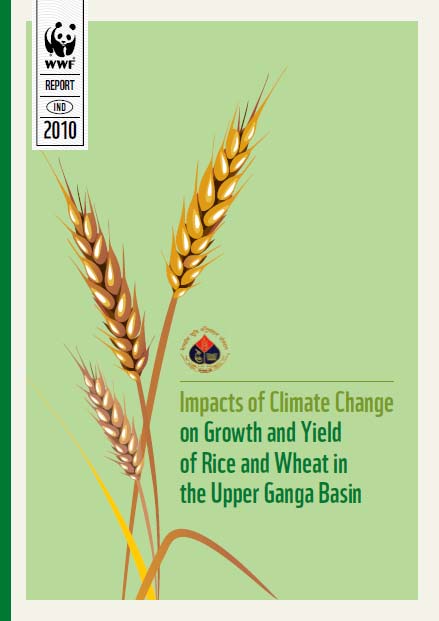Himanshu Pathak
Is traditional wisdom key to combating climate change?
Posted on 15 Feb, 2016 09:55 PMErratic rainfall, heavy storms, extreme weather and droughts are some of the major impacts of climate changes. Though it affects everyone, certain sections of society, like indigenous people who live closer to the natural environment, are in fact more vulnerable to these variations.

Impacts of climate change on growth and yield of rice and wheat in the Upper Ganga Basin – A study by Indian Agricultural Research Institute
Posted on 26 Jun, 2011 01:51 PM This report presents the results based on climate change scenarios and identifies potential adaptation strategies. The study is part of the ‘Climate Change Impacts on Freshwater Ecosystems in the Himalayas’ (CCIFEH) project, a joint initiative of WWF-India and WWF-Nepal, supported by WWF-Netherlands and aims to study and understand climate change impacts on freshwater ecosystems, livelihoods and the economy.
This report presents the results based on climate change scenarios and identifies potential adaptation strategies. The study is part of the ‘Climate Change Impacts on Freshwater Ecosystems in the Himalayas’ (CCIFEH) project, a joint initiative of WWF-India and WWF-Nepal, supported by WWF-Netherlands and aims to study and understand climate change impacts on freshwater ecosystems, livelihoods and the economy.
Change in climate conditions and the frequency of natural disasters in recent times has made it imperative to find lasting adaptation solutions for the agriculture sector. Given that almost 60 per cent of the country’s population relies on this sector for its livelihood and that it contributes approximately 15.7 per cent of India’s GDP, an analysis of changes which could impact crop yields and subsequently lead to an instable food security scenario is necessary.